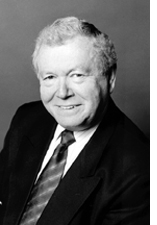By Rabbi Dow Marmur
 JERUSALEM — When the Israeli political system – ironically based on the purest form of democracy of “one person one vote” – seems particularly perverse (which is often the case, alas), a new party emerges. The hope is that having one more option will help the confused electorate. In recent years, the rise and fall of Shinui, led by the late Tommy Lapid, and the Pensioners Party with Rafi Eytan as its head, come to mind.
JERUSALEM — When the Israeli political system – ironically based on the purest form of democracy of “one person one vote” – seems particularly perverse (which is often the case, alas), a new party emerges. The hope is that having one more option will help the confused electorate. In recent years, the rise and fall of Shinui, led by the late Tommy Lapid, and the Pensioners Party with Rafi Eytan as its head, come to mind.
Both parties gained an unexpected number of Knesset seats but once there they soon began to crumble. By the time the people went to the polls next time, their original supporters cast their ballots elsewhere. In retrospect, it should have been obvious from the beginning that the success of these parties wasn’t because of their platforms but simply because they were new and different. Those disappointed with the party they voted for last time, gave the newcomers a chance. Thus, for example, it was said at the time that many of those who voted for the Pensioners were very young voters.
In view of the present situation, which has resulted in the demise of the Labor Party when its leader Ehud Barak left to create a sort-of party of its own, there have been rumors about the establishment of a clearly identifiable social democratic alternative. According to recent reports, such a party will indeed be established in the next few weeks. The list of its possible founders includes Amos Oz, the distinguished Israeli writer, who has been part of earlier attempts to help create a left-of-centre alternative.
Though his name is important both in Israel and abroad, Oz isn’t likely to head it. Amram Mitzna might. He’s the former mayor of Haifa who, for a short while, was the leader of Labor but, because of internal machinations, he was soon ousted. He retired into the small development town of Yerucham where he’s said to have performed near-miracles in improving the living conditions of its citizens and helping create a sound economic and social basis for the future.
Having been badly injured by national politics, he’s reluctant to join the new constellation. But it seems that without Mitzna at its head, the party has little chance.
It’s by no means certain that it’ll have much of a chance even with Mitzna. It’s possible, however, that next time there’re elections in Israel, it’ll get a respectable number of Knesset seats, not necessarily because voters will be enamored by democratic socialism, but because they’re fed up with the alternatives – just like before.
The prospects for a stable and lasting new party may be greater if it finds a way of integrating existing groups, notably the Greens and left-leaning Orthodox Jews who don’t find that the existing so-called religious parties speak to them or for them. Embracing the cause of women’s rights and giving women prominent positions may also attract votes.
On the face of it, leaders with respectable records of achievement outside politics – like Tommy Lapid and Rafi Eytan – and who’re known as persons of integrity untainted by the dirt that tends to stick to some politicians – like Mitzna – have great appeal. But as Mitzna himself discovered when he led Labor, without the manipulations and duplicity of professional politicians, it’s almost impossible to forge ahead.
Yet the thought of giving the new party a chance seems very attractive to me and probably to many others like me who sit at home and bitch about the situation and believe that a new political constellation could change it.
*
Rabbi Marmur is spiritual leader emeritus of Holy Blossom Temple in Toronto. Henow divides his year between Canada and Israel. He may be contacted at dow.marmur@sdjewishworld.com